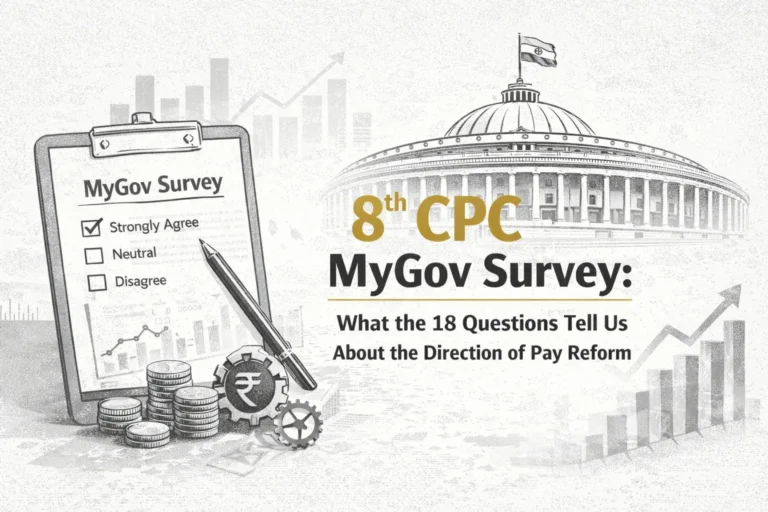IT exemption for Interest paid on House Property-Various Scenarios

The provisions under Section 22 to Section 27 of Income tax Act, covers deduction of interest on house loan from the total income.
Update : After Budget 2014, Income Tax Exemption / Deduction allowed from Income in respect of Interest payable on Housing Loan has been increased to Rs. 2 lakh. Click here to get Revised GConnect Calculator for Exemption for Interest paid on Housing Loan
But, these provisions do not allow direct deduction of house loan interest from the income. The deduction is actually allowed while we incur net loss on house property.
In the cases, where the rent received on your house property exceeds the interest paid property tax paid and 30% rebate of annual rental value for maintenance, it is an income from house property and the same has to be included in your annual income.
In the case of self occupied property it is almost a direct deduction from the salary income.
However, the home loan interest allowed for deduction is restricted to a maximum of Rs.1, 50, 000.
When the property is given on rent, the annual rental value has to be taken in to account for calculating interest or loss on house property. In such cases there is no restriction in the interest of home loan that can be taken for calculating income or loss on house property
Check this GConnect calculator meant for calculating Income or loss on House property for more details.
There are three circumstances under which the annual rental value of a self-occupied/vacant property is treated as nil.
Firstly, where the owned property is located in a city different from where the assessee works and because of this he is unable to occupy the owned premises and stays in a rented premises in the city in which he works. In this case he will be able to take the annual rental value of such a owned property as nil since the property is not occupied by him and not rented out.
Secondly, where the property is located in the same city as the rented premises-but is in his occupation and used for the purposes of his own residence. The question that arises is, how can the assessee claim to occupy the owned property for self residence; when he is also staying in the rented premises? In fact, Section 23(4) clearly recognizes the fact that more than one house property can be occupied and used by the assessee at the same time for the purposes of his own residence. In such cases also annual rental value of the property owned can be taken as nil.
If the property is rented out, there is no issue at all. The income (or loss as the case may be) from house property will be calculated as given above.
In all cases, the deductibility of interest paid on the home loan is not under doubt. Only the annual value could be different, based on where your case falls.
The principal amount repaid on all loans taken from specified entities such as banks/employer companies, to acquire/construct residential house property(ies) is allowed as a deduction under Section 80C; up to the overall limit of Rs. 1,00,000-mentioned in that section. This is not at all affected by the exemption of HRA in any manner.
| Utility of House Property | Owned property located in | Deduction available for interest payable on loan taken to acquire/ construct the property | Annual Rental value taken to be taken | Rebate available for maintenance | Income / Loss from house property |
|---|---|---|---|---|---|
|
(1)
|
(2)
|
(3)
|
(4)
|
(5)
|
(6)
|
|
Rented out |
Any place |
Yes, without any limit |
Actual rent received less municipal taxes |
30% of the annual value |
(4)-(5)- (3) |
|
Utilised for occasional occupation by self or kept vacant |
Another city, different from the city in which you work |
Yes, up to a maximum of Rs. 1,50,000 |
NIL |
NIL |
Loss equivalent to lower of (3) or Rs. 1,50,000 |
|
Utilised for occasional occupation by self |
Same City in which you work |
Yes, up to a maximum of Rs. 1,50,000 |
NIL
|
|
Loss equivalent to lower of (3) or Rs. 1,50,000 |
|
Kept vacant |
Same city in which you work |
Yes, without any limit |
Notional rent that you could have derived, had you rented out the property less municipal taxes |
30% of annual value |
(4)-(5)- (3) |








What happens in a scenario where 1) THe house is given on rent; but 2) The employee gets TDS for interest paid to the limit of Rs. 150000/-;
Now as per your article, there is no upper limit if the property is rented out. Can the employee get tax exemption for the balance interest amount over and above 150000. If so can he show it in ITR and get refund on tax paid? Thanks for clarification..
If the house property (for which interest is sought to be deducted) is rented out there is no restriction on deduction of interest. If the actual amount paid is more than Rs.1.50 lakh, you are eligible to deduct the same. This fact has to be informed to your employer well in advance so that TDS can be planned accordingly. Yet you can apply for refund while filing ITR by showing documents received from the bank which has provided you the loan
Thank for the quick reply. With reference to your reply “…This fact has to be informed to your employer well in advance so that TDS can be planned accordingly…”” does it mean that in the above scenario – on a regular annual basis can the employee get TDS as well as balance refund from ITO? Or is it that the employee has to file return every time and get the refund from ITO. Because, as I understand some AOs in some department refuse to entertain TDS if the property is shown as rented out. “TDS is applicable only on self-occupied property” is their contention. Thanks again for the clarification.
TDS referred to in our reply stands for tax deducted at source. An employee can very well declare that the house property is rented out and he is going to avail deduction of interest to the extent to actual interest paid by him. Based on the same tax to be paid can be calculated by employee and to be informed to employer for deduction from salary. However, proof for these facts are to be produced to the employer.
What happens if i prepay all my Home loan(self occupied), Whether I will get HRA deduction for the purpose of Income tax? Pl reply.
I will be taking a home loan for house construction which is on my father’s name. Will I be getting a rebate in income tax?
your query is answered in the other comment
i will be taking a Home Loan on my name from ICICI Bank for constructing a house at my hometown which is on my father’s name. Will I get rebate in income tax?
if the full or part of the title of the property is in your name you will be entitled for the rebate for the interest paid on the home loan for income tax purpose. A borrower, who is not a owner or co-owner, cannot claim this benefit.
For loan, i am first applicant whereas property is on my father’s name and he will not be taking interest rebate in income tax. He is retired from government service. Still, can i not get rebate in income tax ?
You should either be a owner or co-owner of the property for availing rebate for interest paid on house loan
I have a house in Greater Noida for which I have taken loan and claiming IT rebate on interest component.
I am presently staying in rented accomodation in Delhi( place of residence for family while I am away in feild area) for which I claim HRA. Will I get rebate on rent being paid in HRA alongwith rebate on interest component of my house which is vacant and occupied sometimes only
Pl check the recent gconnect article based on information booklet issued by income tax department which covers this aspect.
http://www.gconnect.in/personal-income-tax/income-tax-exemption-for-the-interest-on-housing-loan.html